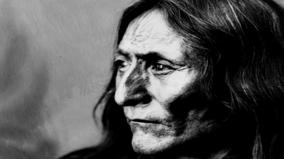Some Stories
Some Stories follows a group of Indigenous youth from the Nipissing (Nbisiing) region who come together through the North Bay Indigenous Friendship Centre and explore the importance and impact of stories in their lives.

-
 Urban.Indigenous.Proud2018 5 filmsUrban.Indigenous.Proud is a film project partnership between the Ontario Federation of Indigenous Friendship Centres and the National Film Board of Canada. Taking a community-driven approach, the OFIFC and the NFB produced five short documentaries by Indigenous filmmakers who set out to explore urban Indigenous culture and lived experiences in five Friendship Centre communities.
Urban.Indigenous.Proud2018 5 filmsUrban.Indigenous.Proud is a film project partnership between the Ontario Federation of Indigenous Friendship Centres and the National Film Board of Canada. Taking a community-driven approach, the OFIFC and the NFB produced five short documentaries by Indigenous filmmakers who set out to explore urban Indigenous culture and lived experiences in five Friendship Centre communities.
-
writerClayton Windatt
-
directorClayton Windatt
-
producerSarah Charles-DeCarloLea Marin
-
executive producerAndré PicardAnita Lee
-
associate producerKate Vollum
-
director of photographyLindsay Sarazin
-
sound recordistJacob Dayfox
-
editorSarah Charles-DeCarlo
-
sound editAnthony Wallace
-
sound designSarah Charles-DeCarlo
-
additional cinematographyBradley TrudeauSarah Charles-DeCarlo
-
additional sound recordingSarah Charles-DeCarloTammy Lin Foreman
-
camera assistantJacob White
-
administratorIsabelle Limoges
-
production coordinatorGabrielle DupontMax Wolfond
-
technical coordinatorDaniel LordKevin Riley
-
director, Business Development, Institutional ProgramJulie Huguet
-
coordinator, Institutional ProgramMarcia Seebaran
-
manager, studio operationsMark Wilson
-
production supervisorMarcus Matyas
-
assistant editorWilliam Mitchell
-
online editorSerge Verreault
-
sound mixerSerge Boivin
-
infographistMélanie BouchardCynthia OuelletJacques-Bertrand Simard
-
technicianIsabelle PainchaudPatrick TrahanPierre Dupont
-
marketing managerCharles PeaseKelly Fox
-
publicistJennifer Mair
-
networking agentDonna Cowan
-
marketing manager, Community projectsJane Gutteridge
-
legal servicesChristian Pitchen
-
title designAimée Rochard
-
featuringSerena KoostachinSimon MathiasRoger AssiniweAgnes IahtailJustice MartinKeenan MitchellVictoria SamKaneisha Echum
This documentary can inspire research, discussion, projects and entry points for further learning about First Nations, Inuit and Métis peoples in urban contexts. How do stories teach culture? What is the significance of oral traditions within First Nations, Inuit or Métis peoples context? What methods have been and can be used to share stories beyond the written form? Have advances in communication technology heightened the value of orality? In a culture that values orality, is a spoken promise as powerful as one that has been written? And who decides its value? How does all of society benefit when First Nations, Inuit and Métis peoples are treated with respect and dignity? How can the collective nature of worldviews that value a holistic relationship with the land and people benefit all of Canadian society? What are the Truth and Reconciliation Commission Calls to Action and have they been followed through with? How can we make the space to be better Canadians in terms of relationships with First Nations, Inuit and Métis peoples?


















